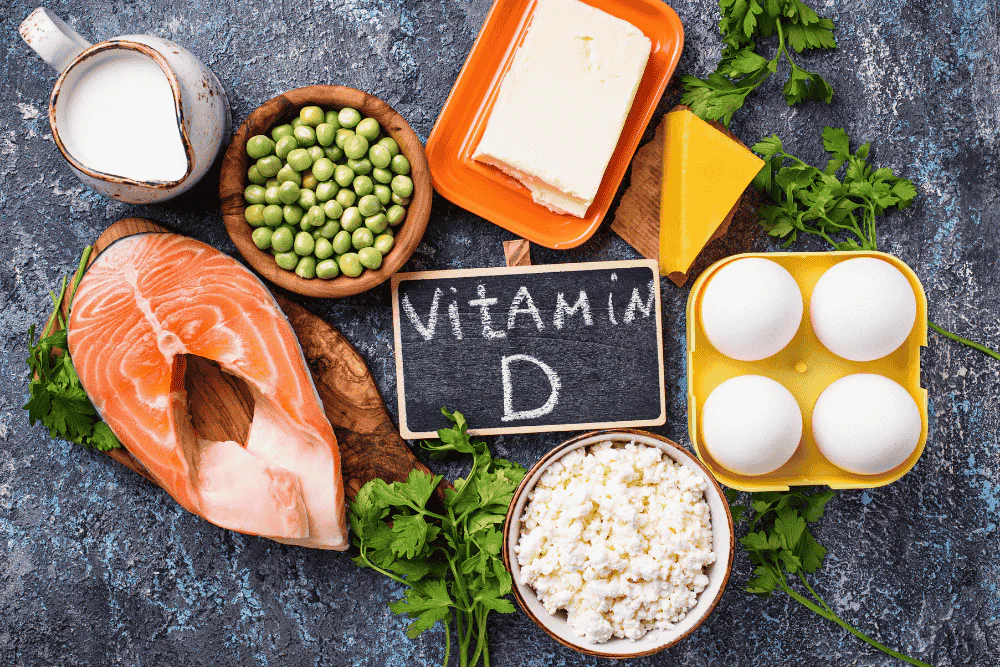Vitamin D3, or cholecalciferol, is a vital form of vitamin D that our body synthesizes from cholesterol. It is one of the two natural forms of vitamin D, with the other being vitamin D2. Vitamin D3 is considered more bioavailable, meaning it is readily absorbed by the body.
The benefits of Vitamin D3 include:
Bone Health:
Vitamin D3 plays a crucial role in the absorption of calcium and phosphorus, promoting strong bones and teeth.
Immune System Regulation:
Vitamin D3 helps regulate the immune system, reducing the risk of certain diseases and promoting overall immune function.
Anti-Inflammatory Effects:
Vitamin D3 has anti-inflammatory properties, contributing to better overall health and reducing the risk of inflammatory conditions.
Mental Health Support:
Vitamin D3 is linked to improved mental health and mood regulation, potentially reducing the risk of mood disorders.
Growth and Development:
Vitamin D3 is essential for proper growth and development in infants and children.
Disease Prevention:
Vitamin D3 has been associated with a reduced risk of various diseases, including diabetes, heart disease, multiple sclerosis, and certain types of cancer.
Weight Management:
Vitamin D3 may aid in weight loss by increasing metabolism and suppressing appetite.
Enhanced Energy and Performance:
Vitamin D3 is known to improve energy levels and physical performance.
Sleep Quality:
Adequate vitamin D3 levels have been linked to better sleep quality.
Incorporating vitamin D3 into your diet and lifestyle through sunlight exposure, fortified foods, or supplements can have numerous positive effects on overall health and well-being. However, it is essential to consult with a healthcare professional for personalized advice on vitamin D3 supplementation and dosage.
Here is a list of the top 10 foods that contain vitamin D3:
Salmon:
A 3-ounce serving provides over half of the recommended daily intake for vitamin D3.
Tuna:
A 3-ounce serving offers about 40% of the recommended daily intake for vitamin D3.
Eggs:
One large egg contains approximately 10% of the recommended daily intake for vitamin D3.
Fortified Milk:
A cup of fortified milk provides 30% of the recommended daily intake for vitamin D3.
Fortified Orange Juice:
A 6-ounce serving provides 100% of the recommended daily intake for vitamin D3.
Fortified Cereals:
Many breakfast cereals are fortified with vitamin D3. Check the nutrition label for the specific amount.
Fortified Yogurt:
A 6-ounce container of fortified yogurt provides 20% of the recommended daily intake for vitamin D3.
Liver:
A 3-ounce serving of liver offers over 80% of the recommended daily intake for vitamin D3.
Cheese:
Most types of cheese provide at least 10% of the recommended daily intake of vitamin D3 per ounce.
Shiitake Mushrooms:
Mushrooms exposed to ultraviolet light are a good vegetarian source of vitamin D3.
Including these foods in your diet can help ensure you meet your daily vitamin D3 needs. However, it’s essential to remember that sunlight exposure is another significant source of vitamin D, and spending time outdoors can also help maintain adequate levels of this essential nutrient.

